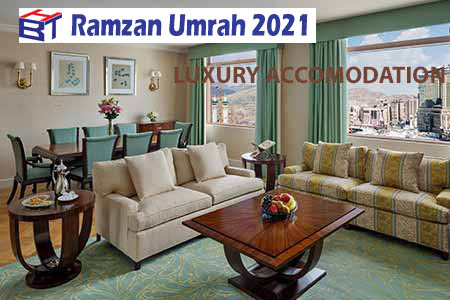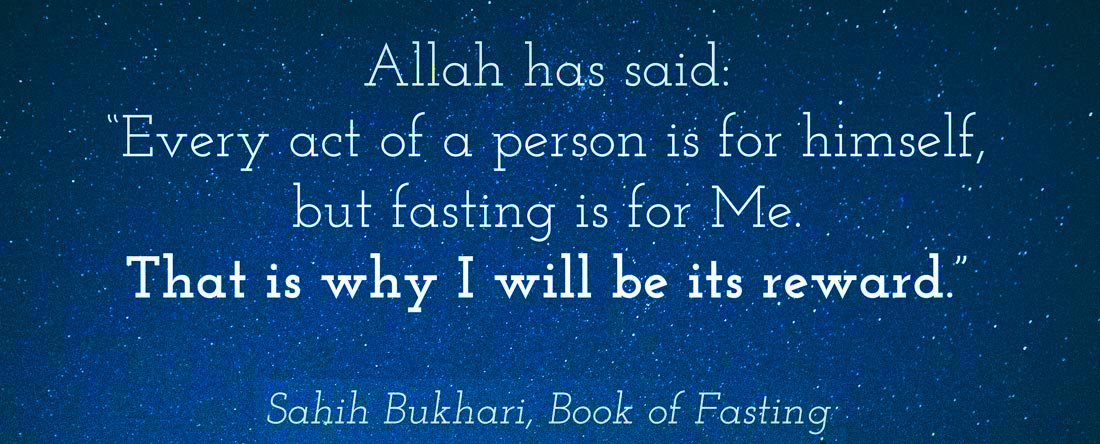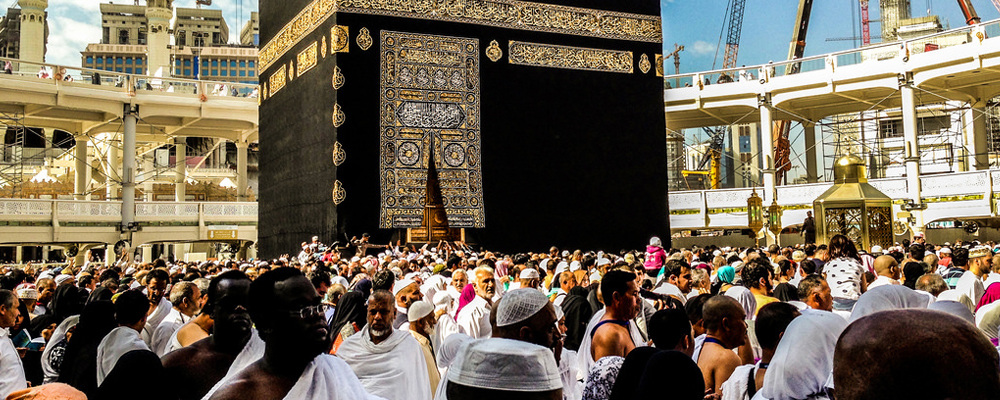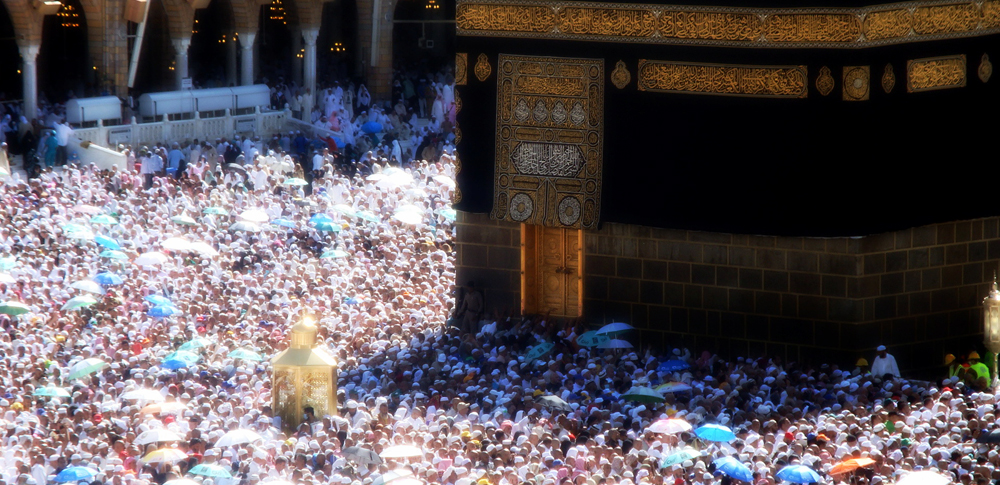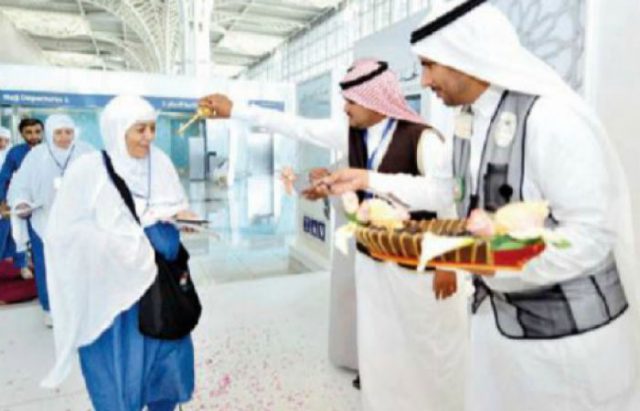Connect with God During Hajj
As part of my daily morning ritual, I turned on the TV this morning while having breakfast to catch up with the news on local and international fronts. Soon I found myself tiring not only of the nonsensical and overly dramatic local media but also of the international coverage which was little more than the US government’s ‘shutdown’.
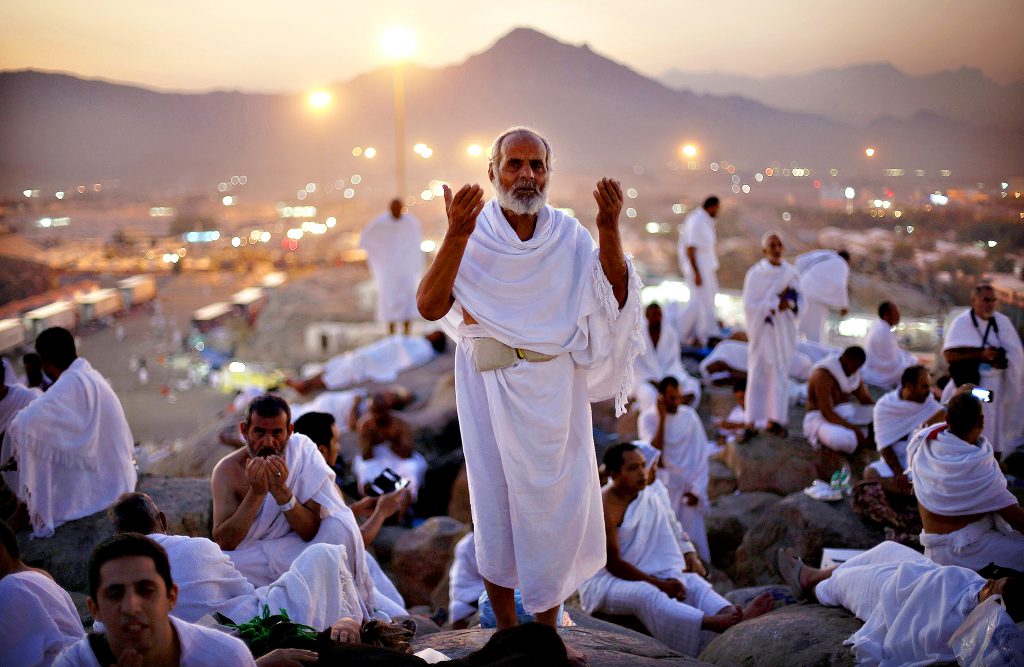
source: blogs.ft.com
So I began to flip channels and hopped on to Saudi TV network’s Quran channel. A wave of nostalgia swept over me as I sat, transfixed, surrounded by memories of my own Hajj journey exactly two years ago. After the pilgrimage, I even wrote about how Hajj was, and probably will always be, the most powerful experience in my entire life.
I remember the first thing that struck me was the sheer scale and power of the collective and singular experience (all at the same time) encapsulated in this journey in the previously desert city of Makkah. However, just like the winds of change have swept through the entire world, so have they affected the Holy Land, turning the once-barren deserts of Arabia into oases; and the date palms and lakes into shiny, glass skyscrapers and dancing fountains. Consequently, the holy cities and the overall Hajj experience have also changed drastically.
The destruction of ancient and often holy, heritage sites in the two sacred cities may not be vexing for the new and unaware pilgrims, but for those who have not only pranced through them in their childhood but also visited them with utmost respect and reverence in adulthood, it is downright upsetting. If this was not enough sacrilege, the replacement of these places – which gave the holy cities their very historic and sacred character – with shiny and glitzy shopping malls and hotels, likens the sanctuaries to nothing less than tourist cities steeped in commercialism. Sadly, today the sacred cities look nothing less than the ranks of Dubai, Hong Kong, Singapore, and Las Vegas. This growing commercialism is always attributed to the increasing pilgrim numbers (which are already managed by quotas) and the need for modern amenities.
However, where do you draw a line?
If you think about it, technology has infiltrated almost every aspect of our lives. I, myself, enjoyed using my smartphone during Hajj with apps like the Quran helping me recite the Quran even on the move, the Qibla compass showing me the direction of the Kaabah and similar apps that enabled me to enhance my experience and make various rites significantly easier.
However, here’s something I noticed not only on TV this morning but during my own pilgrimage two years ago.
During the rites and rituals of Hajj including the tawaf, sayee, stoning of the jamaraat and the rest, you see people brandishing their cell phones, trying to capture each moment – as if afraid that if they don’t capture it on the phone, no one would believe that they actually made the pilgrimage!
So as we let social media penetrate each and every sphere of our lives, we have gotten ever more compulsive about the most intimate religious and spiritual aspects of our lives; moments that are meant to be your very own private time with your Maker.
I fail to understand how we can expect to truly taste the sweetness of the Divine presence, feel the warmth of the sacred Light and hear what the Beloved is trying to say in response to our invocations when we are so desperately trying to show the world what we are doing. Even in moments that demand utter disconnection with the world, we are consumed with worldly connections.
How can one truly reap the rewards of the pilgrimage if they give more importance to getting their ‘Labbayk’ re-tweeted while on their march to Minah? How can one truly feel the spirit of the Hajj if they are constantly checking the number of ‘Likes’ on their Facebook photo with the Ka’abah in the background?
So this is what I want to say to all Hajjis embarking for Hajj:
Dear Hajjis,
Congratulations! You have been called on by the Almighty on the greatest of all journeys. This honor is bestowed on a select few and you should be very grateful to the Beloved for finding you worthy of it.
However, I have two humble requests for you:
1. Focus
I know it is easy to get lost in the glitzy, new malls and modern amenities of the chic hotels. It is easy to let the shopping fever take over. But remember that you’re there for a higher purpose. So focus, pray, implore and seek.
If you find it difficult, make friends in your group who are particular about spending maximum time in the Haram and similar activities. Since this is not a vacation but a pilgrimage, your shopping list should largely consist of:
i. Zamzam
ii. Dates
iii. Prayers caps, beads, mats (as souvenirs for friends and family back home)
iv. Arabic coffee, herbs and items that you won’t find back home
v. Attr and perfume
There is even a Hadith that asks the pilgrims to make sure that they buy a thing or two from the traders in the Holy Cities during their pilgrimage. If you fear you’ll go overboard, plan your trip with a stop-over in Jeddah or Dubai on the way home if you really, really need to shop.
2. Research
As I mentioned earlier, it is becoming increasingly difficult to find places of historic significance in the Holy Cities. You will probably be taken for a Ziyarah (tour) of all the important sights in both cities but sadly, more than 90% of the places have been razed. You may also not be informed of all that is found off the beaten track about the places that you do get to visit. So it is imperative that you research well in advance so that you know what to expect, and so that your experience goes far beyond the ordinary.
Trust me, it will be worth your while.
3. Disconnect
My most important advice to you is to do what each part of this Holy journey symbolizes The shedding of normal worldly attire in favor of two sheets of cloth for men and simple clothes for women is the first sign of ‘letting go’ of all attachments to this world. Rich or famous, powerful or influential – you are insignificant when you present yourself in front of your Lord. But these acts go beyond the physical attachments that we leave behind in terms of garments, family and the comforts of our home.
In fact, it includes our extended forms of existence, including our social and digital attachments. Believe me, Facebook, Twitter, Instagram can all wait. In case you are one of the many who cannot go two hours without checking their notifications, take my advice and de-activate them for the duration of Hajj.
Since WhatsApp, Skype and Viber offer free communication around the world, use them strictly for informing friends and family of your safety and location at spaced out intervals (rather than hour-by-hour updates).
I know that most of us consider this to be essential communication since we are so used to letting everyone know of our activities, but trust me, letting go of it all will be one of the most liberating things you may have ever done.
With this, I bid you farewell, with requests for du’a and supplication. Who knows, He may be listening to you as your journey has already begun!
Good Luck!
Assalamualaikum.
P.S. Here are some essential apps that will come in handy (but don’t unlock that screen to check your notifications on the side while using them):
1. iQuran
2. Tasbih
3. Hajj Guide
4. Qibla Compass
5. Google Maps
6. iPray
Umrah Packages | Hajj Packages | Ramadan Umrah Packages | December Umrah Packages
Article source The Express Tribune Blogs
